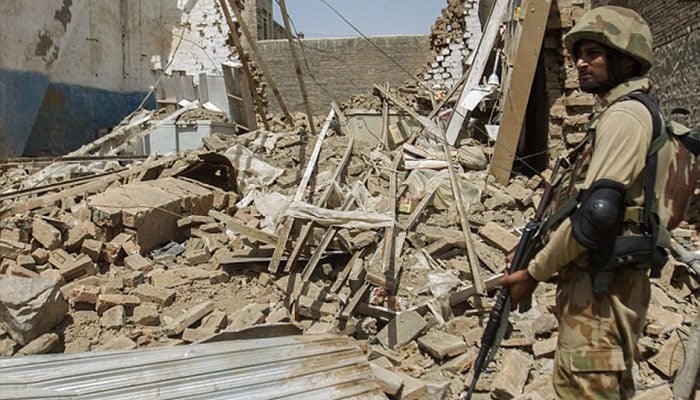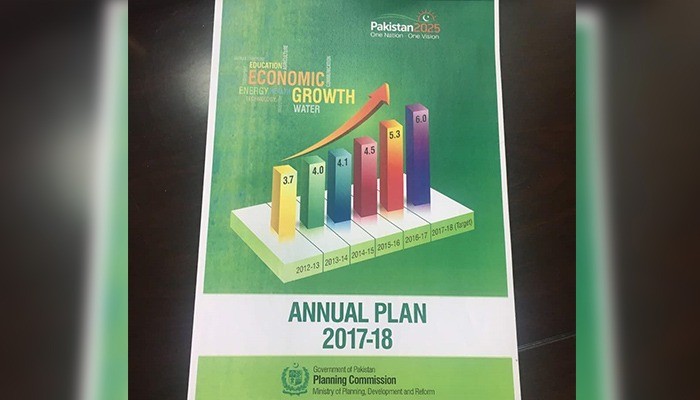Presenting Economic Survey 2016-17, Dar praises growth rate of 5.3%
May 25, 2017
ISLAMABAD: Launching the Economic Survey 2016-17 on Thursday at a press conference, Finance Minister Ishaq Dar said that the Pakistani economy had grown by 5.3%, missing the growth target of 5.7%.
"After almost 10 years, we have exceeded 5% GDP growth. In 2013, we were in the range of 3% growth, and within 4% in the next couple of years. This year, the Pakistani economy has grown by 5.28%, rounded off to 5.3% GDP growth," said the finance minister.
The finance minister said that the Pakistani economy had crossed $300 billion for the first time. He added that the growth target for the next financial year is 6% of the GDP.
Dar said the agricultural sector had grown by 20%, the services sector by 60%, and industry by 21%.
Breaking down the total GDP growth, the industry contributed 5.02%, agricultural sector added 3.46%, while the services sector contributed 5.98% to the total economic growth, he said.
"We are now targeting growth of six percent next year," he said.
Dar said the Pakistani economy was "understated, according to our estimates and even international experts’". He said this was largely due to a number of factors, including the input-output coefficient methodology being used to determine the economy which needs to be updated.
The minister stated that the per capita income is $1,629, saying it “will become better as the economy grows.”
The electricity and gas sector grew by 3.4%, large scale manufacturing (LSM) grew by 5.46%, construction grew by 9.05% while cotton production increased by 10.7%, the minister informed.
From a figure of Rs14.3 trillion in 2013, the national debt now stands at Rs20.8 trillion — less than 60% of the GDP.
The government also met its budget deficit target of 3.8pc, with the actual deficit registering at 3.7pc.
However, it missed its trade deficit target of Rs20.4bn, with the actual deficit widening to Rs24bn in the period under review.
The current account deficit expanded to $7.25bn in fiscal year 2016-17, and is expected to reach 2.7% of GDP by the end of the fiscal year.
Remittances are expected to reach $19.5bn in the outgoing fiscal year, while foreign direct investment is expected to reach $2.58bn.
The minister stated that forex reserves have reached nearly $21 billion.
Poverty declined from 34% in 2011 to 29% in 2017, he stated further.
In the first 10 months of the outgoing fiscal year, exports fell by 2.3% while imports increased by 19.88%.
Sharing figures related to the war on terrorism, the minister said the losses from the war exceed Rs123 billion, adding that 25,000 people have been martyred and 25,000 injured in this war.

“In June 2014 a decision was taken [to launch operation Zarb-e-Azb],” said Dar, terming it a big decision taken by their government taken in the interest of the country. “It was delayed by the previous two governments. but we took it and paid the price. For the past several years, as is the case this year, we have been allocating Rs90-100 billion for the rehabilitation, reconstruction, transportation, sustenance allowance and wheat distribution of the temporarily displaced persons [from conflict areas].”
Moreover, he apprised that the amount is also used for the raising of 57 wings of the civil armed forces — which are supposed to take over operations after the withdrawal of army from conflict areas.”
Answering a question, Dar said the day our exports become 10% of GDP all our economic woes will be resolved.
The minister also expressed hope of Pakistan joining the G-20 group of countries in the upcoming future.













